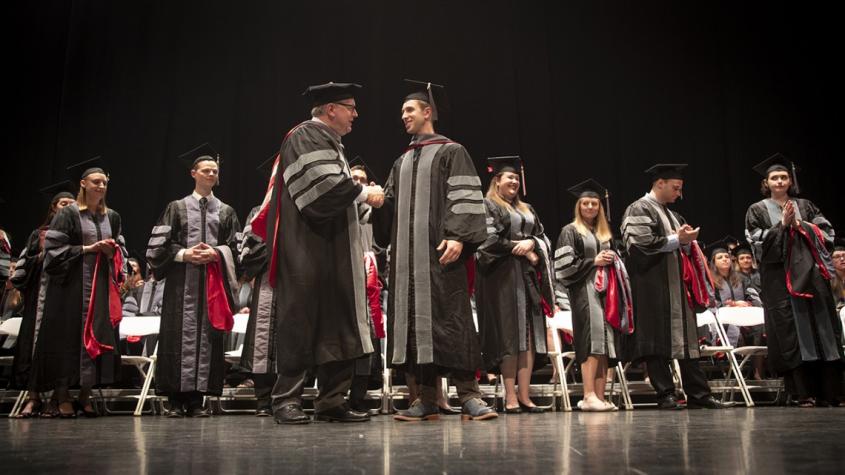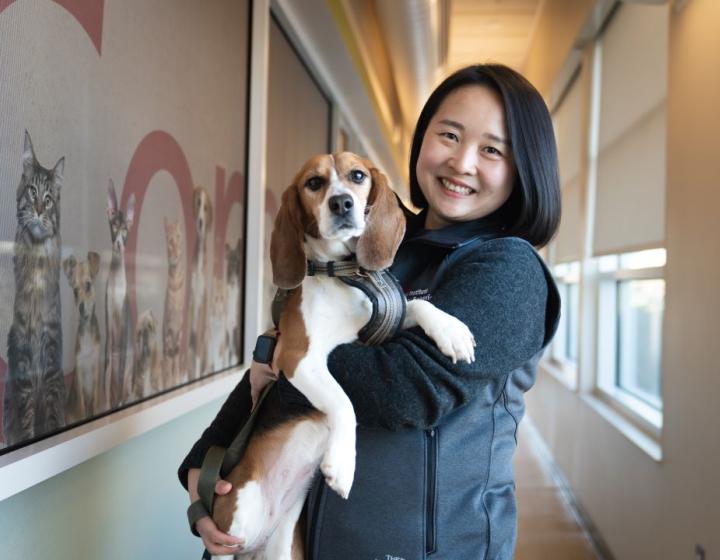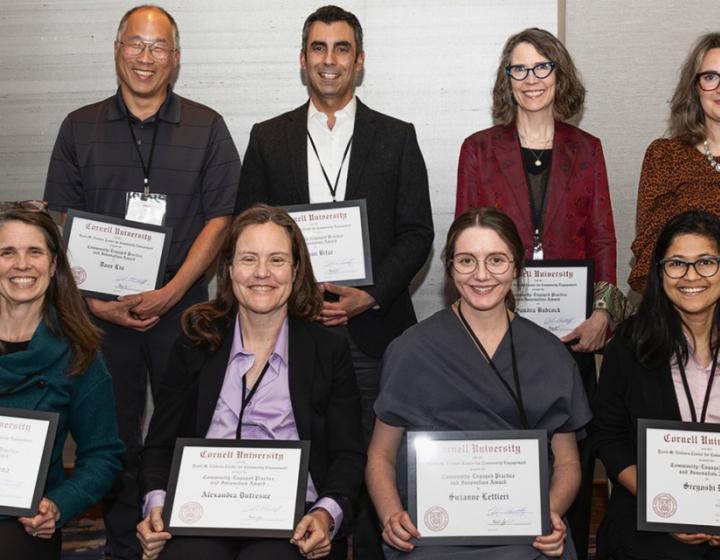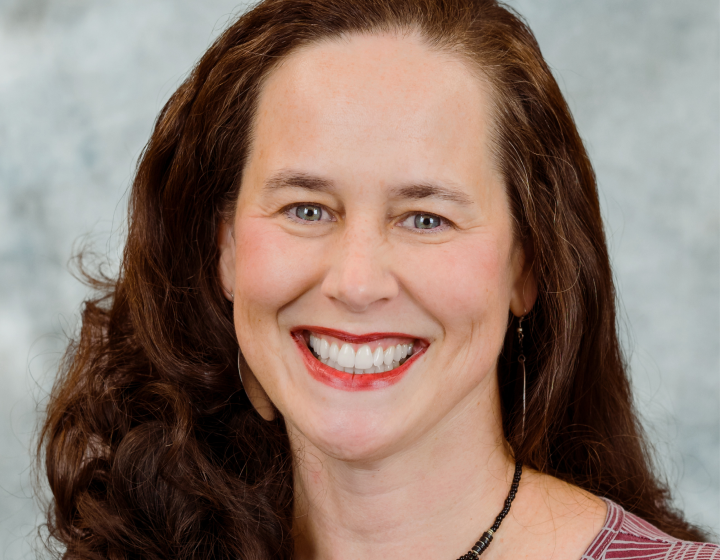For new veterinary doctors, hard work pays off
0526_vet_hooding1.jpg

Dr. Lorin Warnick, Ph.D. ’94, the Austin O. Hooey Dean of Veterinary Medicine, front left, leads the College of Veterinary Medicine’s Hooding Ceremony May 26 in Bailey Hall.
For many veterinary students, balancing studying and taking care of themselves stood out as the most difficult part of getting a doctor of veterinary medicine (DVM) degree.
“It’s very hard to not live at the library or the hospital,” said 2018 graduate Jordan Ford, who made time to clean his apartment and eat. “Remembering to be a whole person was the biggest challenge.”

Jason Koski/University Photography
Similarly, Amber Samantha Harris, who is graduating with distinction, said she worked to balance “studying with being mentally, emotionally and physically healthy.” She did so by visiting with her Texas family on webcam at least once a week, designating one day a week for prepping meals, running and getting to bed at a decent hour.
Now, members of the Class of 2018 can look forward to new challenges; the soon-to-be doctors were recognized at the College of Veterinary Medicine’s Hooding Ceremony May 26 in Bailey Hall and will have their degrees conferred tomorrow.
During his address, Dr. Lorin Warnick, Ph.D. ’94, the Austin O. Hooey Dean of Veterinary Medicine, reflected on attending his own 30-year DVM reunion last month at Colorado State University in Fort Collins. He caught up with colleagues, who have had careers as clinicians, practice owners, entrepreneurs, public health practitioners, university faculty and scientists. Cornell’s current veterinary graduates share these diverse interests, he said.
“One of the things that I love about the veterinary profession is that it can accommodate that wide breadth of interest,” Warnick said. “You are graduating at a great time – the job market is strong, and at least in most parts of the country and world, jobs are readily available.”

University Photography
Recent news reports of re-emerging threats of the Ebola virus, recalls of romaine lettuce and other public health issues point to the strong need for veterinarians, he said. Tackling climate change issues will also require veterinarians’ input to solve, as altering disease patterns and human population growth puts pressure on food supplies, the environment and wildlife, he added.
“You are also graduating at a time of unprecedented changes in the delivery of veterinary health care,” he said. “In the U.S., private practices are being consolidated into fewer, larger businesses.”
He mentioned how technology used in food animal production for decades is now being applied to the pet industry. And telemedicine, personalized medicine and genomics-based diagnoses are rapidly developing.
Graduation is one of those times for a backward glance and reflection, to express gratitude to others, and to build optimism and fortitude for the opportunities and challenges ahead.”
Dr. Lorin Warnick, Ph.D. ’94, the Austin O. Hooey Dean of Veterinary Medicine

Jon King/ College of Veterinary Medicine
“It will be your generation of veterinarians who find ways to harness these tools to improve animal health care,” Warnick said, though he challenged the Class of 2018 to keep “personal interactions between veterinarians, clients and their animals at the center of the profession.”
In the many choices that face new graduates, he advised them to venture beyond their comfort zones. There will undoubtedly be failures and setbacks, he said, but he didn’t agree with the old axiom “fail often, fail fast.” He offered another approach: “The better motto is succeed often … and if you have failures, recover quickly.”
In closing, Warnick recalled his grandfather’s words of wisdom when hiking in unfamiliar country. Stop periodically and look behind to orient oneself. This advice also applies to the journey of life, Warnick said.

Jason Koski/University Photography
Members of the graduating class file out of Bailey Hall auditorium following the ceremony. Dr. Surinder Wadyal, president of the New York State Veterinary Medical Society, is in the background.
“Graduation is one of those times for a backward glance and reflection, to express gratitude to others, and to build optimism and fortitude for the opportunities and challenges ahead,” he said.
Surinder Wadyal, president of the New York State Veterinary Medical Society, led the graduating class in taking the veterinarian’s oath. Then, Warnick and Katherine Edmondson, assistant dean for students and instruction, began the procession and placed the symbolic hoods on the upcoming graduates.
After the ceremony, Patrick Carney, DVM ’06, assistant professor in the Section of Community Practice Service, was awarded the 2018 Zoetis Distinguished Teaching Award.

Jon King/College of Veterinary Medicine
At the reception, Harris, who received the Horace K. White Prize “for the student with the highest academic record during their
veterinary training,” said she learned just that day of her award. “I don’t like to know what my GPA is,” she said. “It hasn’t sunk in yet, I guess all my hard work paid off.”
By Krishna Ramanujan





